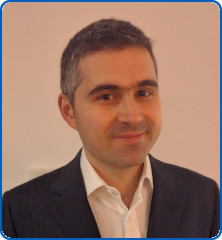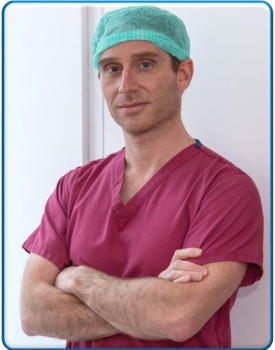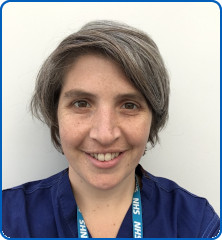Dr Amiel Billetop - NICU
GMC Number: 6145722
Year of first qualification: 2006, Bristol
Speciality: Paedaitrics and Neonatal Medicine
Clinical interest: Neonatology
Telephone: 0117 414 6817
GMC Number: 6145722
Year of first qualification: 2006, Bristol
Speciality: Paedaitrics and Neonatal Medicine
Clinical interest: Neonatology
Telephone: 0117 414 6817
GMC Number: 6168481
Year of first qualification: 2008, St George's, University of London
Speciality: Acute Internal Medicine
Secretary: Lisa Williams
Telephone: 0117 414 1141
Royal College of Physicians (London)
Faculty of Intensive Care Medicine
Society for Acute Medicine
Intensive Care Society

GMC Number: 6130246
Year of first qualification: 2005, Imperial College London
Speciality: Vascular and Endovascular Surgery
Clinical interest: Lower limb arterial and deep venous reconstruction
Secretary: Daisy Tucker
Telephone: 0117 414 6378
Mr Baris Ata Ozdemir trained in vascular and endovascular surgery in the London. He subsequently completed a lower limb endovascular and open aortic fellowship in Montpellier, France. He was appointed to the Bristol, Bath and Weston Vascular Network in 2019.
He has a special interest in diabetic limb salvage, deep venous reconstruction, thoracic endovascular, and open aortic repair.
Mr Ozdemir’s PhD was on healthcare outcomes and he has also published extensively on aortic diseases and the diabetic foot. He is an honorary senior lecturer at the University of Bristol. He is a member of the British Society of Endovascular Therapy.
GMC Number: 4441885
Year of first qualification: 1996, Oxford University
Speciality: Neurology
Clinical interests: Neuromuscular disease
Secretary: Holly Yockney
Telephone: 0117 414 1751
Dr Wood-Allum qualified in Medicine from Oxford University in 1996 having first done a degree in Natural Sciences (Neurophysiology) at Cambridge. She obtained her MRCP (Lond) in 2000 after junior medical jobs in Oxford, Northampton and Nottingham.
She then undertook a period of research into the pathogenesis of Motor Neurone Disease (MND) working for her PhD as a Wellcome Clinical Research Training Fellow at The University of Sheffield. After the completion of her PhD she was appointed Clinical Lecturer and continued her research into MND. On completion of her training in Neurology she was appointed as a Consultant Neurologist at Sheffield Teaching Hospitals NHS Foundation Trust.
Dr Wood-Allum moved to Bristol in 2018 and was appointed as a Consultant Neurologist to the South West Neuromuscular Operational Delivery Network (SWNOD) and North Bristol NHS Trust.
GMC Number: 6063754
Year of first qualification: 2002, Aleppo University, Syria
Speciality: Diabetes & Endocrinology
Secretary: Yvette Wardle
Telephone:01174146420
Hassan graduated in 2002 from Aleppo Medical School, Syria. He came to the UK in 2003 for postgraduate training and obtained certificate of completion of training (CCT) in Diabetes, Endocrinology and General Medicine in 2017. In 2013, he completed a PhD at Hull York Medical School with a focus on Polycystic Ovary Syndrome, Obesity, and Platelet function. Hassan joined the Diabetes and Endocrinology Team at Southmead Hospital in January 2019. He enjoys Diabetes and Endocrinology as a whole and has a special interest in Weight Management.
GMC Number: 6147240
Year of first qualification: 2006, Cardiff University
Speciality: Urology
Clinical interests: Penile Cancer and Genitourethral Reconstruction
Secretary: Warsame Said
Telephone: 0117 414 5004
Mr Manjunath completed his higher surgical training in Urology in the South West of England. He completed a post CCT fellowship in Andrology and Genitourethral Reconstruction at St George's Hospitals NHS Foundation Trust, London (2016-2018).
He was appointed Locum Consultant at the Royal United Hospital, Bath from April 2018 to December 2018 and subsequently appointed to the Bristol Urological Institute.
Mr Manjunath has a particular interest clinically and academically in the management of penile cancer and urethral stricture disease including urethroplasty. In addition he is able to assess and manage general urological conditions.
He is a Fellow of the Royal College of Surgeons of England and a full member of the British Association of Urological Surgeons (BAUS).
GMC Number: 6166435
Year of first qualification: Birmingham, 2008
Speciality: Respiratory Medicine
Clinical interests: Non invasive ventilation, Integrated care
Secretary: Rachael Tucker
Telephone: 0117 414 2016
GMC Number: 6143070
Year of first qualification: 2006, London
Speciality: Plastic Surgery
Clinical interests: Microsurgical breast reconstruction
Secretary: Andrea Thompson
Telephone: 0117 4147626
Dr Philippa Jackson joined the Trust in November 2018 as a Consultant Plastic Surgeon with specialist interest in Breast Reconstruction. She completed a prestigious cross-specialty fellowship in Oncoplastic Surgery and a microsurgical breast reconstruction fellowship prior to taking up her post.
GMC Number: 7464349
Year of first qualification: 2009, University of Rome Sapienza
Speciality: Neurosurgery

Clinical interests: Epilepsy surgery, neuro-oncology
Secretary: Ms Katie Ball
Telephone: 0117 414 6708
Italy-trained Neurosurgeon, born in 1980, CCT equivalent completed in 2009.
2009-2012 PhD in Clinical Neurosciences on dye-guided resection of intrinsic brain lesions.
Moved to the UK in 2014 and joined the Specialist Register (Surgical Neurology, no. 7464349).
2014 Endoscopic Pituitary and skull base Fellow at the QEH NHS Foundation Trust, Birmingham
2015 Minimally invasive spine surgery Fellow at the QEH NHS Foundation Trust, Birmingham
2016 -2017 RCS Senior Clinical Fellowship in Neuro-oncology
2017- 2018 Senior Epilepsy Fellow in Southmead Hospital and in the internationally renowned Centre of Epilepsy Surgery “C. Munari”, Milan, Italy.
Consultant Neurosurgeon at NBT since December 2018, with a special interest in Epilepsy Surgery and Neuro-oncology.
Patient's feedback can be left at: http://iwgc.net/ejxha
GMC Number: 6120268

Year of first qualification: University of Bristol, 2005
Speciality: Respiratory Medicine
Clinical interest: Lung cancer, mesothelioma, pleural disease, clinical trials & research
Secretary: Tracey Ayshford
Telephone: 0117 414 2016
Email: Respiratoryadmin@nbt.nhs.uk
Dr Anna Bibby was appointed in 2018, having completed her speciality training in respiratory medicine and general internal medicine in the Severn Deanery in 2015. As well as a brief period working for Medicins sans Frontieres (MSF) in Mozambique, she spent three years working towards a PhD in mesothelioma at the University of Bristol. She maintains an active interest in clinical research, and holds a personal NIHR research fellowship with the University that allows her to run several mesothelioma trails alongside her clinical commitments.
She is co-lead for Lung Cancer Services at North Bristol NHS Trust, and sits on the steering committee for the British Lung Foundation Mesothelioma Research Network. She ran the Europian Respiratory Society Taskforce on Malignant Pleural Effusions and is a member of the 2018 British Thoracic Society Pleural Disease Guideline group. She sits on the faculty for the British Thoracic Society thoracic ultrasound training course and the European Respiratory Society ultrasound and pleural procedure courses.